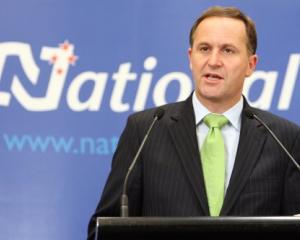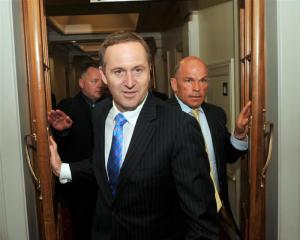This article could well have been written in the months leading up to the 2005 general election.
At that time, all the discourse or rhetoric, all the media moments, seemed focused on one object only.
The questions posed by journalists to political candidates were endlessly repetitive: will you bring in tax cuts? How deeply will you cut? How much more money will I have in my hand each week?Gradually, it seemed that this was the only purpose for the poll.
So extreme were some of the promises and the demands that, to me, it came as something of a relief to hear one party say clearly: we shall not introduce tax cuts - yet.
Nothing much has changed in the three years since 2005.
The cry for tax cuts seems as strong as ever, except that now the question is not if, but how much?What does this incessant emphasis on reduced taxation say about us as a nation? Whose interests are we really serving when we join in the side-line barracking for tax reduction?Increasingly, I realise that there are many others like me who are uncomfortable with what seems to be an excessive desire for personal gain.
For some, of course, any reduction in taxes may mean the critical difference between paying the mortgage or losing the house.
But for many it will be (as it is so frequently described) more money in the pocket, a few more lattes or that larger block of cheese.
As a nation, we have always been better than that; more generous, more aware of our fellow human beings, more compassionate and less self-centred.
Why else did we so early in our history develop schemes for income and housing support for the poor or homeless among us? Why else do New Zealanders give voluntarily and with extraordinary generosity of their time and talents and energy to help the young, the old, the sick or the disabled of our own society and at the same time give to the poor and disadvantaged of the wider world? We are great people.
I am not an economist - so much is probably already obvious.
To me, the question about reduced taxation is an ethical, not an economic question.
I believe tenaciously in the basic goodness of people, in our capacity for generosity and concern.
I believe tenaciously in the goodness of life and in the right of every single being on the planet to flourish and to reach his/her/its full potential.
I believe that respect for Earth itself should be a high priority in all policy formation.
I believe that we elect governments to help us collectively to realise the full life potential of all of us.
I do not think that economic growth is the sole purpose of government, although it seems that we must constantly measure it.
If government is about anything it should be about the common good - the good of all citizens, especially the disadvantaged.
In the lead-up to this election, therefore, can we begin again to believe that if a policy is not good for the poorest or most vulnerable in our society, it is not good for any of us? I think we can.
I'd like to offer a simple checklist to help us vote beyond the rhetoric of tax cuts.
If tax cuts come with increased government borrowing and debt, the cost is too high.
If tax cuts further limit the resources available for protecting species, or taking care of national parks and wild places, or protecting the Earth itself, the cost is too high.
If tax cuts mean that fewer resources will be applied to address climate change, the cost is too high.
If the billions spent on tax cuts mean that less is available to meet historic Treaty claims, the cost is too high.
If tax cuts result in increased numbers of children living in poverty, the cost is too high.
If tax cuts are achieved through reduction in health, education and social support services, the cost is too high.
If tax cuts reduce the nation's capacity to habilitate prisoners and compensate victims, the cost is too high.
If tax cuts deepen divisions in the social fabric of this nation, the cost is too high.
What price tax cuts? We all need to be sure about the real costs before we tick the boxes on November 8.
• Elizabeth Mackie is a Dominican sister writing on behalf of the Dominican Mission and Justice Committee.







